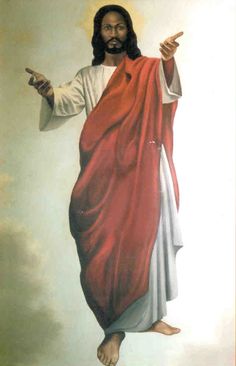Their Reputation in Every Place: Page 2 of 3 (series: Lessons on 1 Thess.)
by John Lowe
(Woodruff, S.C.)

9 for they themselves report what kind of reception you gave us. They tell how you turned to God from idols to serve the living and true God,
Instead of Paul’s telling others what had happened in Thessalonica, others were giving him a twofold report about this Macedonian city. First, they describe how Paul, Silas, and Timothy had entered the city (v. 5). Second this church had turned to God from idols (see note 9.1); the one God whom Paul preached as “the God that made the world and all things therein”; the living God, having life in Himself, and “giving to Paul life and breath and all things”; the true God, having in Himself the truth and substance of essential deity, in extreme contrast with an “idol, which is nothing in the world.” So though the Thessalonians did turn to God, they were enabled to do so only because the gospel came to them in the power of the Holy Spirit (v.5).
Two purposes for the Thessalonians turning to God are given in verses 9 and 10: “to serve—the (One) living and true God” (v. 9) and “to wait for His Son from heaven” (v. 10). Such service to God speaks of utter devotion and recognition of His rightful lordship over mankind. He alone is worthy of this, for He is “living,” in contrast to lifeless idols, and “true,” in contrast to counterfeit representations of Himself. The meaning is not the true as opposed to the false; the contrast is between the true and the unreal. These two words “serving” and “waiting” are characteristic of the Christian life. The Thessalonians served God and waited on the coming of Christ. The Christian is called upon to serve in the world and to wait for glory. The loyal service and the patient waiting were the necessary preludes to the glory of heaven.
When they worshipped idols, the Thessalonians had no hope. (Read Psalm 115 for a vivid description of what it is like to worship an idol.) But when they trusted “the living God,” they had a living hope (1 Peter 1:2-3). Those of us who have been brought up in the Christian doctrine cannot understand the bondage of pagan idolatry. Before Paul came to them with the Gospel these people were without hope and “without God in the world” (Ephesians 2:12). In Romans 1:15-22 the apostle shows that when one becomes a Christian, that one exchanges the bondage of sin for bondage unto righteousness, the believer being in bondage to God under grace. When one becomes a true believer he is no longer his own; he belongs to Christ.
Now someone might ask, “How can I (little man) serve God?” My answer is⸺serve Him in faithful obedience to every command, serve Him in the face of opposition and violent persecution directed against them—with every faculty of soul, body, and worth —in life, in suffering, in death. But in spite of persecution, the enemy failed to shake their faith in the message delivered to them.
The idolater is enslaved by his own passions and the iron bands of custom. His worship is mechanical, without heart, and without intelligence. The service acceptable to God is the full, spontaneous, pure overflow of a loving and believing heart. It is an ennobling service. It is a free loving service. Man becomes like what he worships; and since the object of his worship is often the creation of his own depraved mind, he is debased to the level of his own gross, polluted ideas. Idolatry is the corrupt human heart feeding upon and propagating its own ever-growing corruptions. The service of God lifts man to the loftiest moral pinnacle and transfigures him with the resplendent qualities of the Being he adores and serves. It is a remarkable service. It brings rest to the world-troubled spirit, fills with abiding happiness in the present life, and provides endless joy in the future—results idolatry can never produce.
But I think the best reason of all for turning from sin to God is this: Christ is coming to judge the earth, and for that reason, we should be fervent in our service to Him because we have little time remaining to further the work of Christ’s Kingdom before He returns. We should be prepared for Jesus to return at any time because we don’t know when He will come.
This verse, as well as verse 5, indicates that there were those who said that Paul was in this business of preaching the gospel for what he could get out of it. The trouble in the early Church was that there were people who did attempt to cash in on their Christianity.
9.1 Any creature, real or imaginary, that you have vested with divine properties is an idol. An angel, a saint, an animal, a man, an idea, an object or anything to which we’ve ascribed omnipotence can become an idol—a false deity. Idolatry is a sin against which the most staunch warnings have been uttered in all ages, and on account of which the most terrible judgments have been inflicted, yet it is the worship of idols to which a man is most prone.
No content on preachology.com may be printed or
copied to any other site without permission.
|
The Preaching Ezine Subscribe to my free newsletter for monthly sermons and get a free book right now. Just follow the link above and get the details! |
|
Sermon Supply Ministry
Be ready for Sunday…before Saturday night! |
|
Manna Seminary
Did you ever want to start or finish your Ministry Training? |
|
YOUR PAGES: by sharing YOUR great sermons! by sharing YOUR great poems! |



